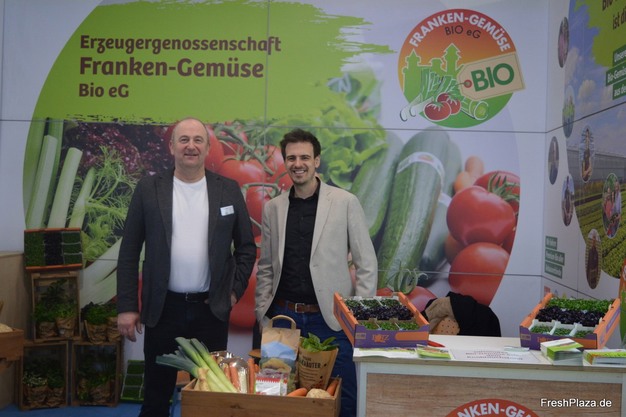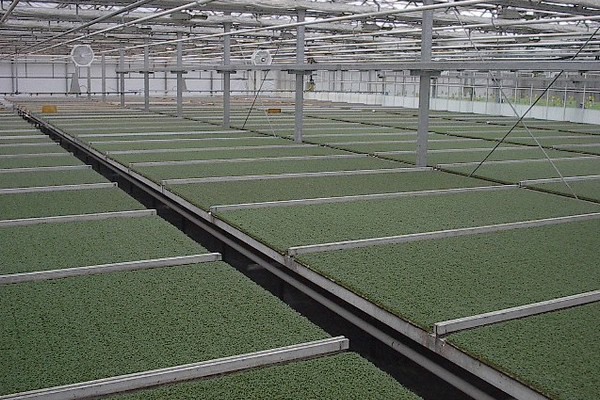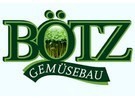Easter and Pentecost are usually marked by a high demand for domestically produced cresses. "Although sales are quite satisfactory at the moment, we have been able to move significantly less volume than in the same period last year. This is mainly due to the fact that many discounters have stopped listing organic cresses. This, in turn, is related to the fact that many consumers are now paying more attention to their expenses due to inflation. The task, therefore, is to get the cresses listed in discounters again soon.
The prices have remained almost the same compared to last year, continues Roland Bötz. "Of course, there are some question marks at the cost level, such as energy and materials. Lately, costs have stabilized somewhat, but there will be another increase in the cost of cardboard. We expect this increase to continue until the end of the year."

Roland Bötz and Felix Schmidling at the stand of Franken-Gemüse Bio eG at this year's BioFach in Nuremberg.
The horticultural business produces a total of eight types of cresses in organic quality. Our range has remained almost unchanged in recent years. We are currently considering some innovations, but want to wait and see how the markets develop. From a marketing perspective, traditional garden cress continues to be the most popular, although the other varieties are gradually closing the gap. Comparatively, garden cress is also a bit cheaper than the other varieties, which is particularly due to the more expensive seeds and the additional labor involved. Nevertheless, consumers are increasingly willing to pay these extra costs for exotic cress varieties.

Organic cress cultivation.
Although the majority of sales are to the retail food industry, organic cresses also find their way into gastronomy through wholesale. "Due to the precarious shortage of labor in the gastronomy sector, organic cresses are nevertheless enjoying increasing popularity. The number of start-ups in this field continues to grow. "There are more and more start-ups in the area of urban farming. Since we market our cresses nationwide, we do notice this, especially in the big cities. These urban farms, unlike us, cannot certify themselves as organic because they do not cultivate under natural growth conditions. In this respect, we continue to have a unique selling point with our organic cresses.
Images: Gemüsebau Roland Bötz GbR
For more information: Roland Bötz
Roland Bötz
Gemüsebau Roland Bötz GbR
Loher Hauptstraße 99
90427 Nuremberg
Phone 0911-345391
Fax 0911-382129
[email protected]
www.boetz-kresse.de
